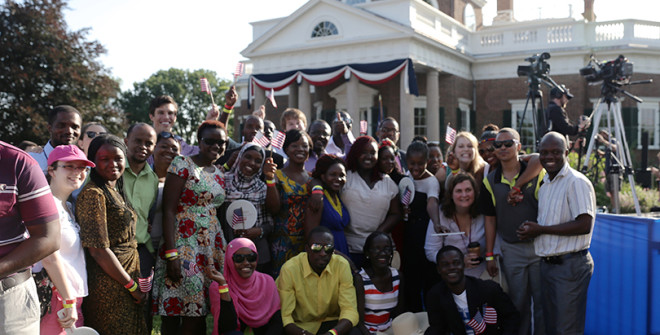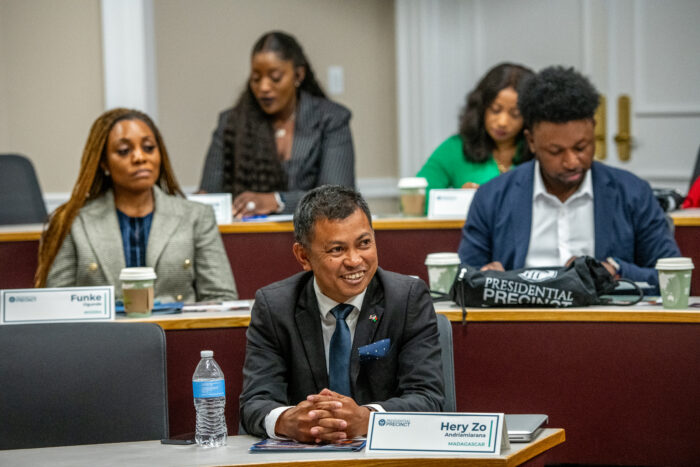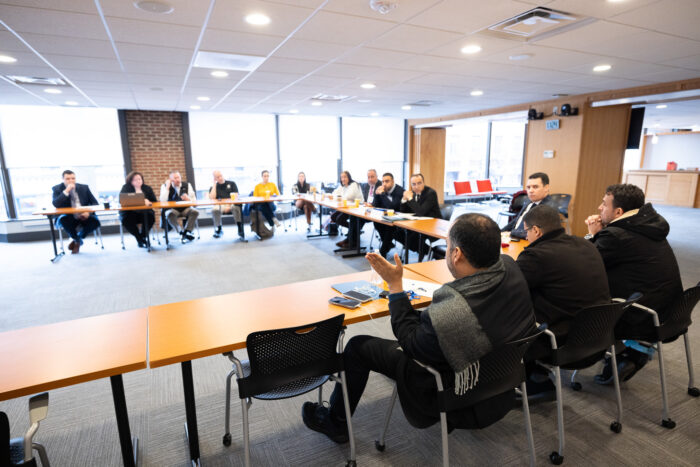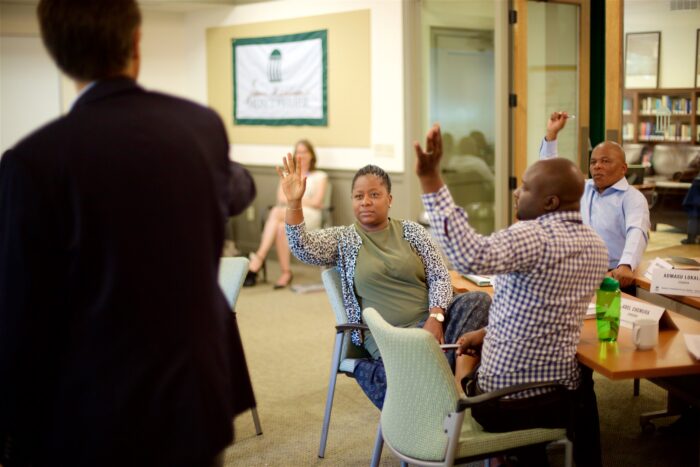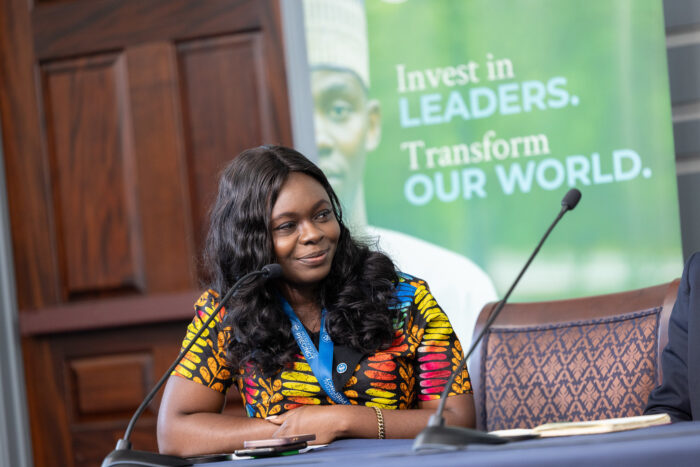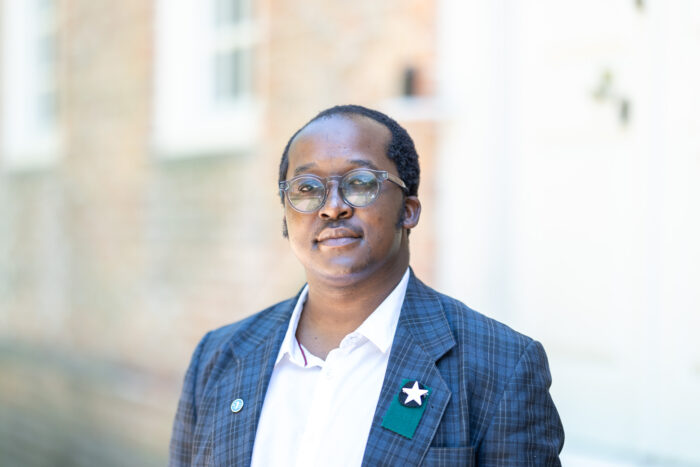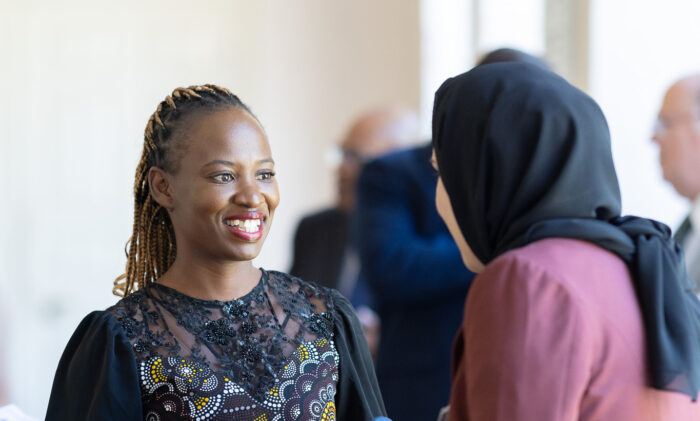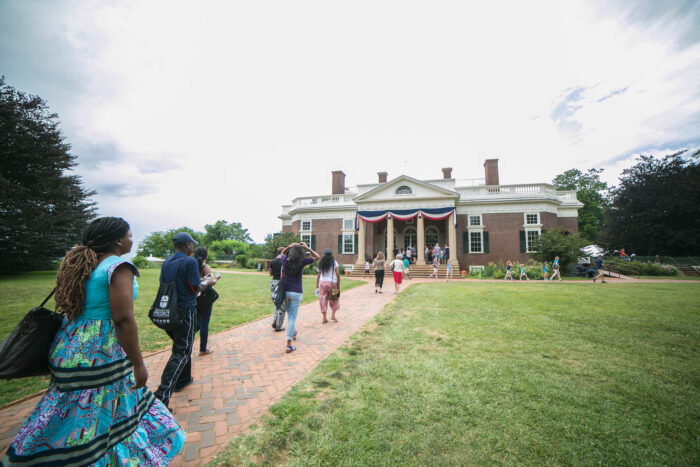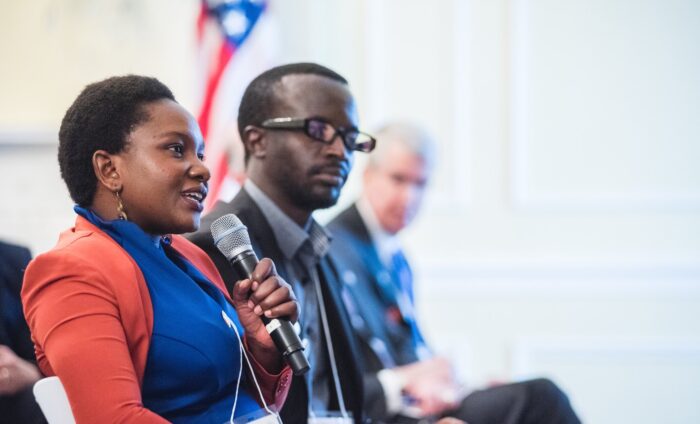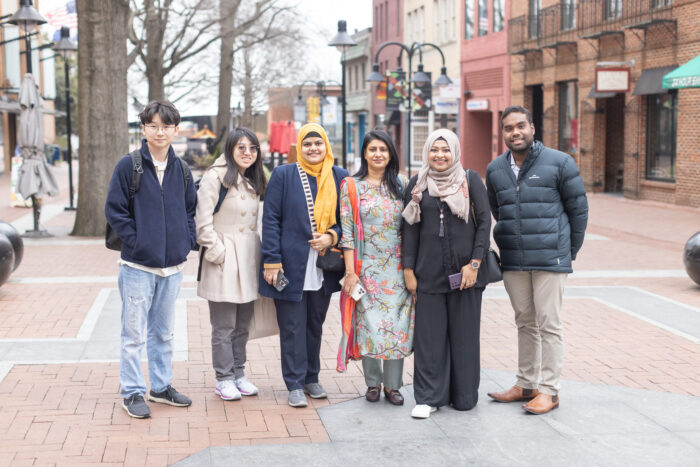Democracy U: Presidential Precinct Unites Schools and Presidential Homes to Support Global Development
Originally published by C-Ville Weekly.
On the day that this paper hits stands, a small Charlottesville nonprofit is stepping out on an international stage. The Presidential Precinct, a consortium that brings together UVA, William & Mary and four historic properties in Central Virginia with the lofty goal of advancing democracy on a global scale, is hosting the Magna Carta forum, a day-long summit on self-governance and the rule of law at the National Archives Building that will wrap up with a roundtable discussion between Prince Charles and young leaders from around the world.
It’s a big day for a small organization that for its first few years of existence has largely flown under the radar here. But the group, which represents an unprecedented collaboration between major Virginia institutions, has been thinking big from the start.
The Precinct was born from a gift. The late John W. Kluge deeded the 7,379-acre, $45 million Morven Farm property in southeastern Albemarle to UVA in 2001, but after the sale of more than half the acreage and the establishment of an endowment to fund the estate’s future, the University was still grappling with a basic question: What should it do with the land? It was beautiful, no question, and it had a remarkable history; Thomas Jefferson bought the tract for Colonel William Short, former U.S. Minister to France and a man Jefferson referred to as his “adoptive son,” in 1795.
But those chewing over the question knew that establishing another historic tourist attraction in Central Virginia wasn’t the answer, said Jim Murray, the venture capitalist, former cell phone company CEO and UVA alum who was involved in those early conversations and who eventually founded the Precinct.
“The business model of having people get in a car with the children and traveling 150 miles to look at an old house was dying,” he said. The challenge for the University was to find new ways to share the lessons of history. Around 2010, in an e-mail exchange with UVA’s then-president John Casteen, he hit on something.
“The biggest problem globally is how to build successful countries,” Murray said. What if they could create a place in the heart of the oldest sustained democracy on the planet, close to the homes of several of its founders—what UVA Vice Provost for Global Affairs and Precinct board member Jeffrey Legro referred to in an interview as “the Silicon Valley of Democracy”—to talk about nation building?
Stewart Gamage, who was recruited by UVA from her position as William & Mary’s vice president of public affairs in 2008 to coordinate Morven’s strategic planning, saw an idea bigger than a single institution. The histories of her former employer and her current one were tightly woven with those of the three presidents whose land and lives are so much a part of Central Virginia’s identity, she pointed out, and their historic estates were struggling with the same existential questions as Morven.
“The real value proposition seemed to be that you could take the four Ms—Monticello, Monroe’s Ash Lawn-Highland, Morven and Montpelier—and combine them with the horsepower of UVA and William & Mary, arguably two of the best universities in the country,” Gamage said.
Together, the six became the Presidential Precinct, a nonprofit guided by a board made up of leaders from each institution and driven by an ethos that Gamage sums up simply: “It can’t be that our best days were in the 18th century.”
The next question, said Gamage and Murray, was who else should join the conversation. By the time the Department of State paid a visit in the summer of 2012, the new organization was ready to make its pitch: The gang of six would together host official department programs that brought emerging leaders from around the world to the U.S. to study American democracy with professors and other experts. The State Department would deliver the participants, but the Precinct would do the rest, including fund the visits. The first group came in December 2012, 35 young leaders from 35 countries.
“That’s really when the magic started,” said Gamage.
They had about $200,000, Murray said, primarily from a local donor, and no staff, but the State Department liked what it saw and lined up more visits. The board found a leader for the organization in 35-year-old Neal Piper, who arrived in October 2013 after years spent working in global health in Africa and elsewhere.
Piper’s experience was key to the Precinct’s decision to hire him, said Murray, and so was his age. The founding fathers were young when America was born (Thomas Jefferson was 33, James Madison 25, James Monroe just 18 in 1776), and so are the international rising stars tapped by the State Department to participate in the Precinct’s programs. That was the case with the members of President Obama’s new Young African Leadership Initiative (YALI) fellowship program, which brought 25 people from 18 African countries—where 60 percent of the population is under 35—to the Precinct last summer for a six-week stay.
YALI saw 50,000 applicants try for 5,000 spots at institutions across the U.S. in its inaugural year, and the arrival of two dozen of them in Central Virginia last June was a watershed moment for the Precinct. The visitors—lawyers, rising executives, NGO workers, media professionals—studied constitution writing with professors at Montpelier and walked the grounds of Monticello talking about slavery in the era of the American revolution. They also joined a drum circle at BON café in downtown Charlottesville and tubed the James River.
“It was transformative,” said Leslie Greene Bowman, president of the Thomas Jefferson Foundation, which owns Monticello, and a Precinct board member, and not just for the participants, whom they got to watch forge new relationships and acquire leadership skills they would take home. “It was as much an energizing experience for us,” Bowman said.
She recalled a moment at Monticello when the group dove into a discussion of how the Civil War sundered a young America. “Many of these young leaders are in democracies that are only 50 years old,” Bowman said, and are no strangers to war. It was a relatable point for everybody, and a reminder, she said, “that we didn’t get everything right.”
That ethos is key to what the Precinct is doing, said its leaders.
“It’s built into everything we do,” said Legro. “We say, ‘Come here and see the mistakes we made, and some of the things we figured out, and tell us your input and thoughts and ideas.’” The U.S. has been working on the democracy question for more than 200 years, he said, “but in the arc of human history, we’re all in the same time frame.”
And that’s why it’s important that the Precinct and the institutions within it take no point of view, said Murray. They may be grounded in a nation with a strong belief in democracy and human freedom, he said, “but we’re here to provide a venue to talk, not preach to people.”
For Duncan Mikae, an elected leader within Kenya’s National Youth Bunge Association, a network of community parliaments run by young adults, the takeaways were many. The most important, he said, was that he got to share the experience with other young people from across Africa, and he’s keeping up with them thanks to an online network for Presidential Precinct alums created by Piper. The fact that American democracy was born from the same kind of collaboration here centuries ago isn’t lost on him.
“When you’re exposed to different environments and different people, and you understand what they’ve gone through and how they go about solving their problems, you get another perspective,” he said. “It helps you look at what you do critically. It broadens your scope.”
Mikae is back in Virginia again, finishing up another fellowship for visiting scholars at Monticello. He said he’s excited to join fellow Presidential Precinct alums in D.C. this week for the Magna Carta forum, where they’ll again be part of an international meeting of the minds, pondering heavy questions about governance. But he’s also excited to go home. He’s leaving with a new understanding of how to build consensus, he said, which is key to his work in pulling young people into leadership roles in a country that is still often defined by its factions.
“You cannot buy that,” he said.

